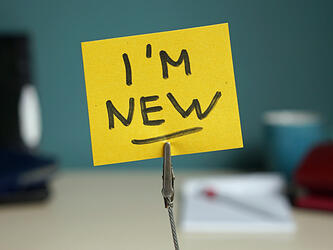When will The Apprentice take market research seriously?
Market Research has a bit of an image problem. We’re in need of a rebrand. We’re the ‘ones with the clipboard’. The ‘annoying people who call you just as you’re about to start eating your tea’.
And this opinion isn’t just perpetuated by the general public. There are people in business who have strong anti-MR opinions. Emily Eavis, the daughter and co-manager of the Glastonbury Festival, was once quoted as saying, “market research is death to everything”. A little extreme?
Karmarama founder Dave Buonaguidi has said, “Research can’t tell you what people want – if you give them what they say they want, they don’t really want it.” Even Lord Alan Sugar, the great business mind behind the Amstrad em@iler, said in his autobiography, “There was no time for this nonsense [market research] – I had to trust my gut instinct when it came to gauging what consumers would go for.”
Do any of these people actually know what research is? That it doesn’t just play a part in NPD work, but can be used throughout the product life cycle? Interestingly enough, Sugar’s TV project, The Apprentice, has a somewhat inconsistent approach to the role of market research. Some candidates are praised for ‘following the market research’ when they’ve only talked to a couple of people; others are chastised for acting on respondent feedback when a traditional focus group has been organised.
‘Bad market research’ is often thrown in as a reason for firing a candidate, when there’s only a few pounds to separate a winning side from losing one. Unfortunately, The Apprentice does nothing to help market research’s ailing image. There are no lessons learnt when the research is genuinely bad and no advice on how things could be done better.
For example:
- In 2011, Melody was tasked with finding out whether French consumers would be interested in a child’s car seat. Her group decided to question 4 commuters at the Paris Metro Station – all of whom did not drive and therefore couldn’t see its use. The product was not selected for sale as a result and the team lost the task
- However, in 2013, Jason chatted to five people in a cafe who seemed to really like his dating website concept ‘Friendship and Flowers’. He was later told ‘you should never just blindly follow the market research’
- In 2008, when ice cream flavours needed to be tested, one of the teams arrived 30 minutes late to their focus group, found everyone had left, and so interviewed 2 drinkers in a local pub. They went on to win the task so their methods weren’t scrutinised
- In 2011, during the biscuit creation task, an entire concept was scrapped because one member of the focus group said “I just didn’t like it”
Although The Apprentice purports to be a programme about business, it is very obviously just another reality entertainment show. However, it’s probably the best chance the market research industry has of being showcased on national television.
The programme is now in its 12th year and market research has come a long way in that time. Online methodologies are now ubiquitous, and it’s relatively easy and cheap to get the opinions of hundreds of people within a short period of time. If prototypes of new products dreamt up by Apprentice candidates can be manufactured overnight, why can’t they be asked to put together a short survey to test a product or service at the concept stage?
Questionnaire writing and data analysis could be assessed, and decisions could be made on (seemingly) robust data. As a bonus, the general public would get a taste of a slightly more realistic process.
If you look through the agendas of conferences and other industry events going on worldwide about market research, there always seems to be some element of ‘innovation’ being discussed. We’re constantly trying to think up increasingly sophisticated, enjoyable and/or less intrusive techniques to uncover powerful insights for our clients.
To Joe Public, however, market research is still slightly sinister, or just too vague. If The Apprentice truly embraced the function of market research, we might be better placed to prove our worth, not only to those clients who are unfamiliar with our methods and processes, but also potential respondents too.
Laura Finnemore is a research manager at McCallum Layton

We hope you enjoyed this article.
Research Live is published by MRS.
The Market Research Society (MRS) exists to promote and protect the research sector, showcasing how research delivers impact for businesses and government.
Members of MRS enjoy many benefits including tailoured policy guidance, discounts on training and conferences, and access to member-only content.
For example, there's an archive of winning case studies from over a decade of MRS Awards.
Find out more about the benefits of joining MRS here.













4 Comments
Horst Feldhaeuser
9 years ago
You said it in one of your paragraphs.... it's a reality show. So why would they be interested in showing 'real' market research. Unfortunately, much more fun for them if they make s..t up. As an aside, in real life we also phase the challenge that clients might just launch a prototype in a real but confined environment instead of testing it through research first. They save the MR cost, still need to build the prototype and can up or downscale if successful or not. Depends on how much the cost of prototype launch is. Instead of a $30k MR project, some just do it..
Like Reply Report
Nude Acolyte
9 years ago
The culture of business is still very macho. Going in to the boardroom with evidence to make an informed decision does not earn as much respect as saying 'This is my gut instinct'. This culture still favours the CEO (usually male) who's whole existence is based on his reputation for being intuitive and macho, not inclusive and considered. MR is for wimps. As CJ said, ' I didn't get where I am today [by doing market research]'. That's Alan Sugar in a nutshell.
Like Reply Report
Jim WHaley
9 years ago
This is all fine and good but the REALITY IS, is that THE APPRENTICE is still on the air because MARKET RESEARCH indicates it is reaching audiences and what Audiences you say? Well MARKET RESEARCH informs all the Brands and Marketers that place adds during that time slot. I think Market Research also drives the CONTENT and the DIRECTION. As THE APPRENTICE relies on audience feedback to determine what is working and what is not. Culture drives Content not Logic. Jim Whaley
Like Reply Report
Ferdinand Edwards
9 years ago
Hail Alan Sugar (aka Grumpy Bastard), the legendary business genius behind the Amstrad Emailer which, after big swinging hunches and little or no MR.....gulp....sank without trace. Stick to property development, far more lucrative. Oh, and bring back Margaret.
Like Reply Report